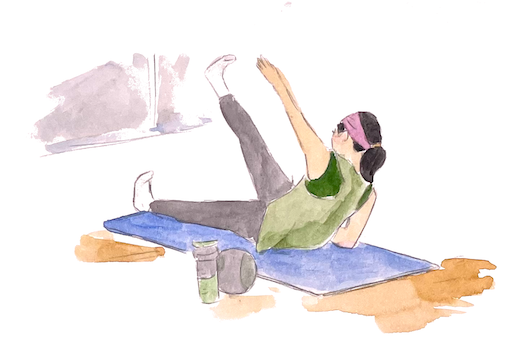A Japanese perspective on how to measure good health
|
Dear Reader, When you type in ‘healthy’ in Google, do you know what definition comes up? It is quite literally defined as, “in good health”. It’s a seemingly simple concept– to be “healthy”-- but the truth is that many of us haven’t spent that much time thinking about what this means, and upon closer examination, many of us aren’t really sure how to measure being healthy. At the most basic level, many of us have been taught growing up that ‘healthy’ is about having a BMI within a certain range. If your ratio of body mass to height is within that range, your doctor may have told you that you are healthy. Other times we are encouraged to measure being healthy by attaining certain physical features, like a six pack or toned legs, or by meeting certain endurance milestones, like running a 7-minute mile. Sometimes we are told to measure it by fitting into a certain size pants, other times we are told to track our waist size to determine if we are healthy enough. It's one of the most common mistakes to being healthy that I hear, and it’s foundational: “If you’re XYZ weight/size/fitness level, then you’re healthy.” Many people attribute the idea of being healthy to numbers and metrics like weight, clothing size, or the number of miles they can run. But when we really think about it, it doesn’t make sense for all of us to measure it in the same way. Because how could your sibling/parent/grandparent/neighbor/child possibly be measuring their health in the same way as you? In Japanese, the word for healthy is kenkou (健康). It is made up of two characters:
Together in Japanese, these two kanji work together to convey the full meaning of "health," combining ideas of strength and peace. In short, good health is understood as feeling strong and at peace. Defining what healthy looks like for yourself There is a need for us to define what healthy looks like for ourselves, because good health is not 'one size fits all'. Instead of taking the numbers at face value, it's helpful to dig deeper and understand for ourselves the larger picture, because true well-being encompasses not just physical metrics, but also emotional, mental, and social balance. How does my body feel today? How do I feel emotionally?
Do I feel energized and confident in my daily life?
How would I be living if I felt strong and at peace?
I guarantee that good health is not a single pants size, number on our health chart, or mile time we can run. Instead, by viewing health as feeling strong and at peace in both our mind and body, we can lead a truly fulfilling, joyful, and meaningful life. Warm regards, Kaki Thanks for reading! If you enjoyed this, please forward this email to your friends and family (or share the article) 🌱 If this email was forwarded to you, it's nice to meet you 😊
Follow on Instagram for more health tips, tricks, and inspiration: |
Hi, I'm Kaki!
I teach about health inspired by simple Japanese philosophies and lifestyle practices, so you can learn to find peace, fulfillment, strength, and health in your own body. Sign up for my newsletter to receive all my writing and exclusive resources!
Dear Reader, I was not born into this world with an intuitive understanding of how to take care of my body and mind. I know some people are, and I found myself wondering for years, how do they just live their life and everything seemingly falls into place? But luckily, it was possible to learn. For many years I overate, underate, stressed about food, did every kind of exercise and diet that was supposedly life-changing, stressed about my body, and couldn’t find peace with it. For a time, I...
Dear Reader, It's February! I kind of love February, even though it's still too cold and gets dark too early to do much. It means I have more time to myself, which is a cherished kind of time for me these days. But the thing about February is it's just about the time when I'm shown (possibly harsh) truths about any goals I had set for myself at the end of last year. Am I making progress? Have I hit any of my goals? Does quitting make me a failure? I believe challenging yourself is a kind of...
Dear Reader, I'm not sure where you might be right now, but where I am it's so COLD To be precise, it's a high of -8°C/18°F or a "feels like" temperature of -12°C/10°F considering windchill. It also gets dark at 5pm. 😥 On days like this, there's nothing I'd rather do than make a cup of hot tea, curl up under my heated blanket, and lie down on the couch to read. Which is what I did do this weekend, but before I let myself get bundled up and settled in, there was a question I needed to sort out...
